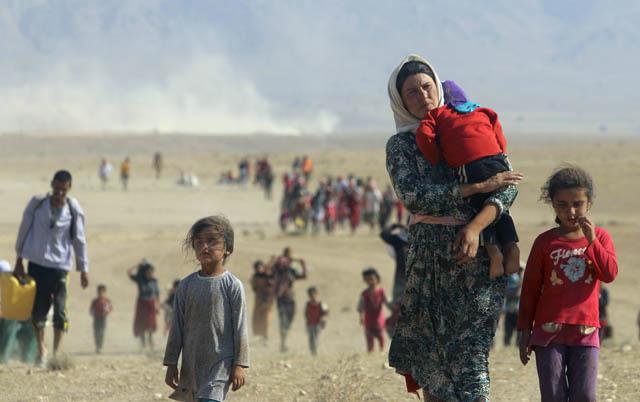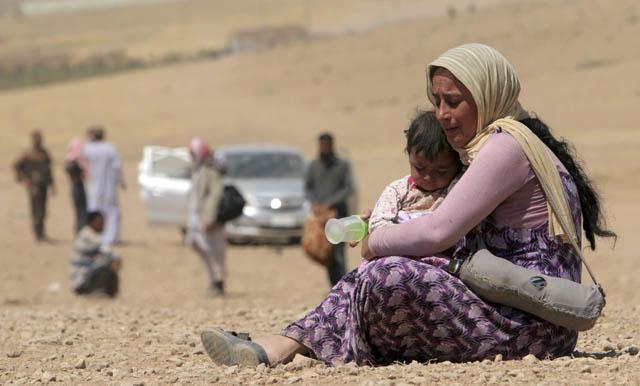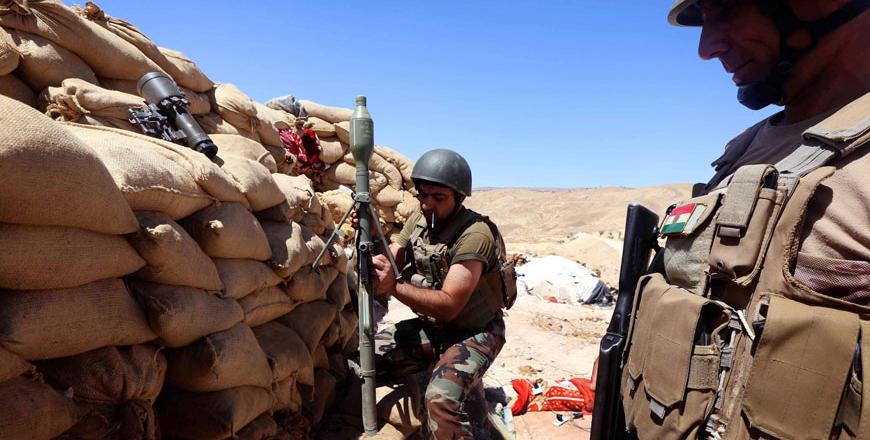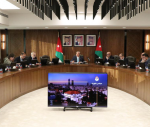You are here
US ready to help new Iraq leader; Iran welcomes choice
By Reuters - Aug 12,2014 - Last updated at Aug 12,2014

BAGHDAD — Iraq's new prime minister-designate won swift endorsements from uneasy mutual allies the United States and Iran on Tuesday as he called on political leaders to end crippling feuds that have let jihadists seize a third of the country.
Haider Al Abadi still faces opposition closer to home, where his Shiite party colleague Nouri Al Maliki has refused to step aside after eight years as premier that have alienated Iraq's once dominant Sunni minority and irked Washington and Tehran.
However, Shiite militia and army commanders long loyal to Maliki signalled their backing for the change, as did many people on the streets of Baghdad, eager for an end to fears of a further descent into sectarian and ethnic bloodletting.
Sunni neighbours Turkey and Saudi Arabia also welcomed Abadi's appointment.
A statement from Maliki's office said he met senior security officials and army and police commanders to urge them "not to interfere in the political crisis". At least 17 people were killed in two car bombings in Shiite areas of Baghdad.
As Western powers and international aid agencies considered further help for tens of thousands of people driven from their homes and under threat from the Sunni militants of the Islamic State near the Syrian border, Secretary of State John Kerry said the United States would consider requests for military and other assistance once Abadi forms a government to unite the country.
US officials said the Obama administration was already considering sending more military advisers to Iraq. Speaking on condition of anonymity, several said a decision to send at least 70 extra military personnel was likely later on Tuesday, although a final decision had not yet been made.
Senior Iranian officials also congratulated Abadi on his nomination, three months after a parliamentary election left Maliki’s bloc as the biggest in the legislature.
“Iran supports the legal process that has taken its course with respect to choosing Iraq’s new prime minister,” the representative of Supreme Leader Ayatollah Ali Khamenei on the Supreme National Security Council was quoted as saying.
“Iran favours a cohesive, integrated and secure Iraq,” he said, adding an apparent appeal to Maliki to concede.
Abadi himself, long exiled in Britain, is seen as a far less polarising, sectarian figure than Maliki, who is also from the Shiite Islamic Dawa Party. Abadi appears to have the blessing of Iraq’s powerful Shiite clergy, a major force since US troops toppled Sunni leader Saddam Hussein in 2003.
Iraqi state television said Abadi “called on all political powers who believe in the constitution and democracy to unite efforts and close ranks to respond to Iraq’s great challenges”.
One politician close to Abadi told Reuters that the prime minister-designate had begun contacting leaders of major groups to sound them out on forming a new Cabinet. The president said on Monday he hoped he would succeed within the next month.
A statement from a major Shiite militia group, Asaib Ahl Haq, which has backed Maliki and reinforced the Iraqi army as it fell back from the north in June, called for an end to the legalistic arguments of the kind used by Maliki to justify his retaining power and urged “self-restraint by all sides”.
It said leaders should “give priority to the public interest over the private” and respect clerical guidance.
While US officials have been at pains not to appear to be imposing a new leadership on Iraq, three years after US troops left the country, President Barack Obama was quick to welcome the appointment. Wrangling over a new government since Iraqis elected the new parliament in April has been exploited by the Islamic State to seize much of the north and west.
Obama has sent hundreds of US military advisers and last week launched air strikes on the militants after they made dramatic gains against the Peshmerga forces of Iraq’s autonomous ethnic Kurdish region, an ally of the Baghdad authorities.
Kurdish President Masoud Barzani told US Vice President Joe Biden that he would work with Abadi, the White House said.
US officials have said the Kurds are also receiving direct military aid, and US and British aircraft have dropped food and other supplies to terrified civilians, including from the Yazidi religious minority, who have taken refuge in remote mountains. The United Nations said on Tuesday that 20,000 to 30,000 Yazidis may still be sheltering on the arid Mount Sinjar.
UN Secretary General Ban Ki-moon described the Yazidis’ plight on the mountain as dire. “I urge the international community to do even more to provide the protection they need,” he told reporters.
Kerry, who on Monday had warned Maliki not to resort to force to hold on to power, said on Tuesday that Abadi could win more US military and economic assistance.
“We are prepared to consider additional political, economic and security options as Iraq’s government starts to build a new government,” he told a news conference in Australia, where he also reaffirmed that Washington would not send combat troops.
“The best thing for stability in Iraq is for an inclusive government to bring the disaffected parties to the table and work with them in order to make sure there is the kind of sharing of power and decision making that people feel confident the government represents all of their interests,” Kerry added.
It remains unclear how much support Maliki, who remains acting premier, has to obstruct the formation of a new administration. One senior government official told Reuters that his fears of a military standoff in the capital had eased as police and troops had reduced their presence on the streets.
“Yesterday Baghdad was very tense,” he said. “But key military commanders have since contacted the president and said they would support him and not Maliki.”
Related Articles
Iraq's president named a new prime minister to end Nouri Al Maliki's eight-year rule on Monday, but the veteran leader refused to go after deploying militias and special forces on the streets, creating a dangerous political showdown in Baghdad.
Iraq’s prime minister-designate called on the country’s numerous Shiite militias and tribes to come under government control and stop acting independently on Monday, as violence across the country killed at least 43 people in areas where the Muslim sect dominates.
BAGHDAD/BEIRUT — Iraq's former prime minister Nouri Al Maliki on Tuesday denounced as worthless a parliamentary report which blamed him and

















